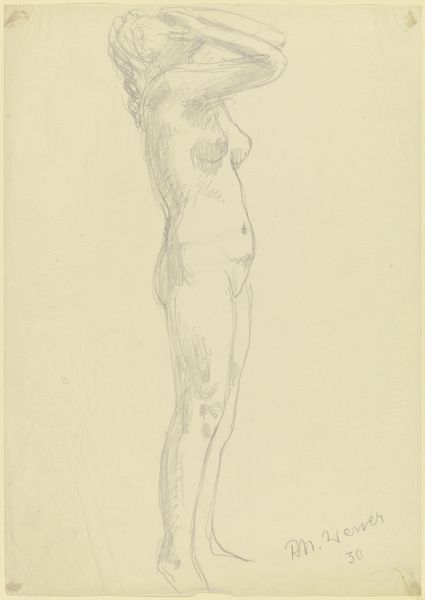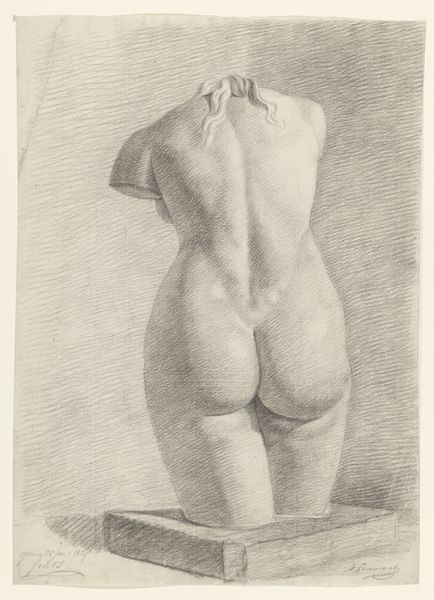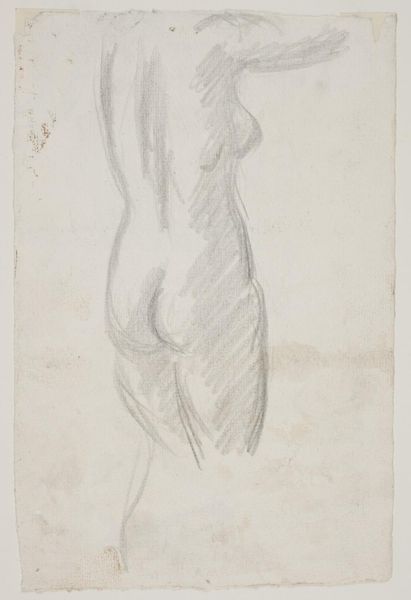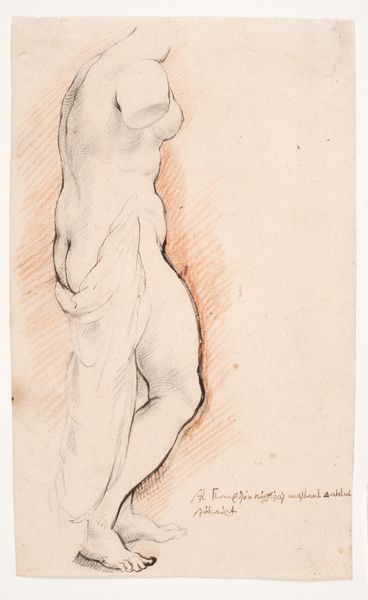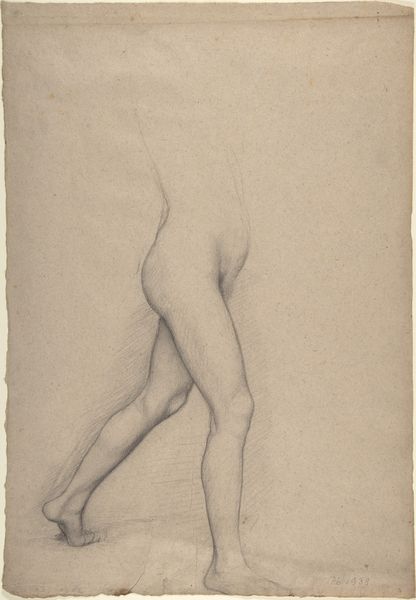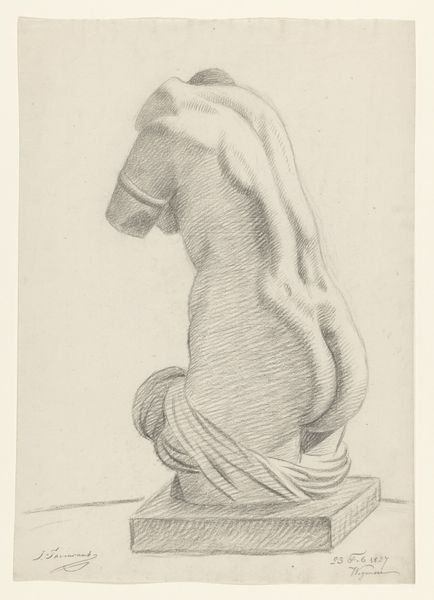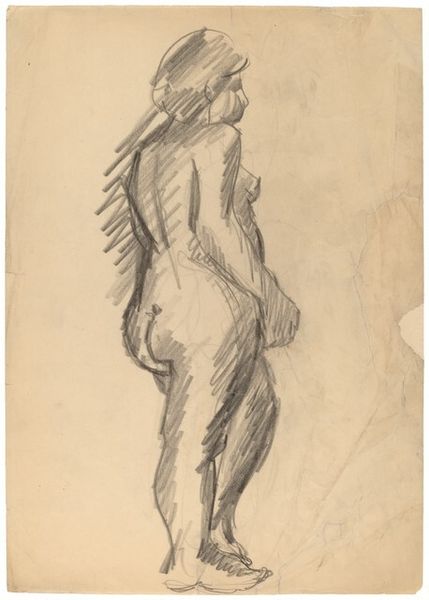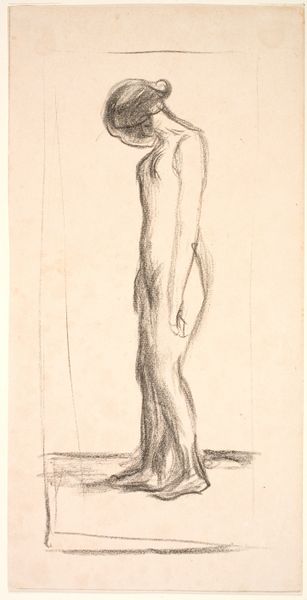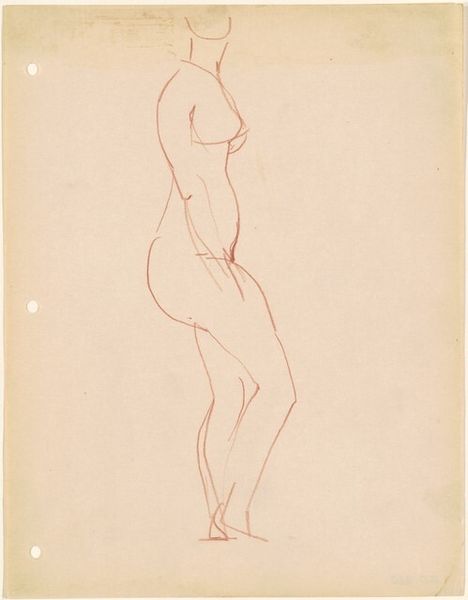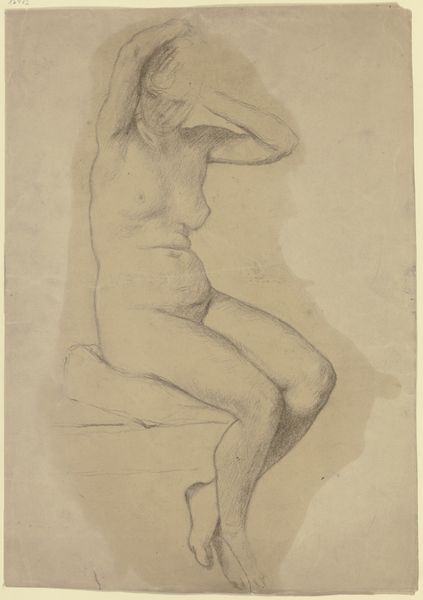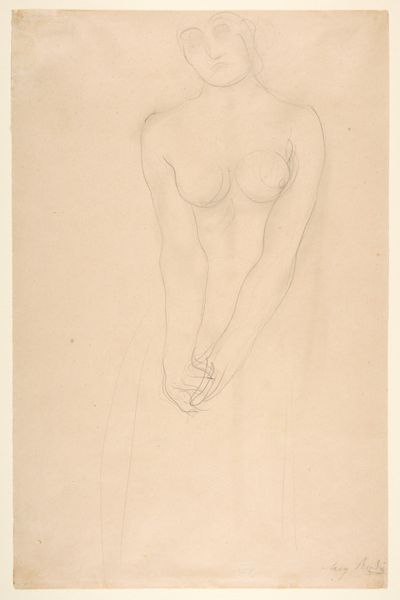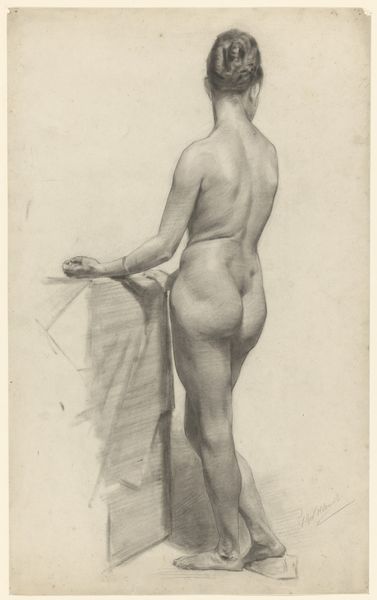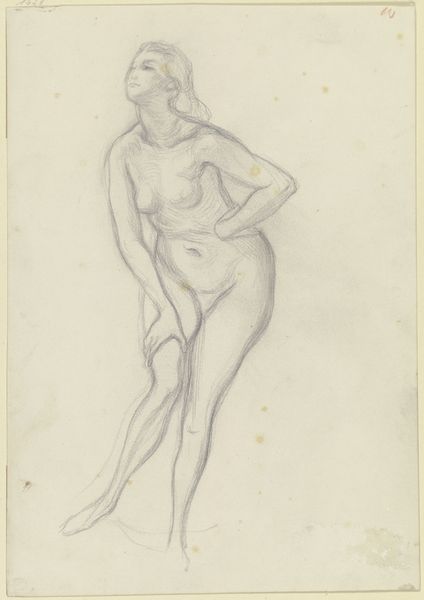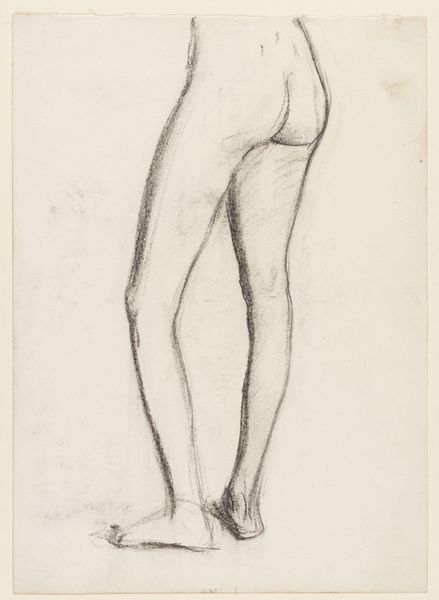
drawing, pencil
#
pencil drawn
#
drawing
#
amateur sketch
#
toned paper
#
light pencil work
#
pencil sketch
#
figuration
#
personal sketchbook
#
pencil drawing
#
sketch
#
pencil
#
sketchbook drawing
#
portrait drawing
#
pencil work
#
academic-art
#
nude
#
realism
Dimensions: height 476 mm, width 336 mm
Copyright: Rijks Museum: Open Domain
Johannes Tavenraat made this drawing of a plaster cast in 1827. Using graphite on paper, Tavenraat painstakingly rendered the form of a female torso. The choice of materials and subject speaks volumes about artistic training in the 19th century. Graphite, a readily available and relatively inexpensive material, was ideal for sketching and preliminary studies. Paper provided a smooth surface for capturing the subtle gradations of light and shadow on the plaster cast. Plaster casts, like this female torso, were common teaching aids in art academies. By copying classical sculptures, students learned about anatomy, proportion, and the ideals of beauty. Tavenraat's drawing demonstrates his mastery of technique and his understanding of classical forms. But it also reveals the limitations of academic art education, which often prioritized imitation over innovation. In his attention to detail, Tavenraat elevates the status of drawing from a mere preliminary exercise to a finished work of art, blurring the line between craft and fine art.
Comments
No comments
Be the first to comment and join the conversation on the ultimate creative platform.
